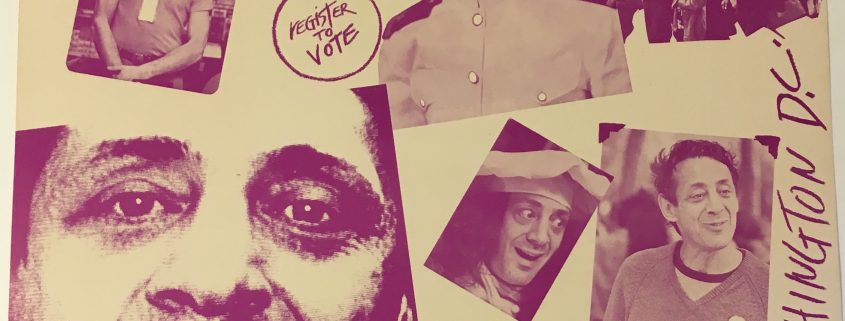USC to digitize LGBTQ political posters
ONE National Gay & Lesbian Archives at the USC Libraries — the world’s largest repository of LGBTQ materials — will digitize 4,200 LGBTQ political posters and protest signs from its collection. The materials will be made accessible through the USC Digital Library and the Digital Public Library of America for free public access.

Photo courtesy of ONE
Born this way · The ONE Archives strive to paint a picture of the LGBTQ community’s history of social and political activism.
According to the Council on Library and Information Resources, the collection, named “Out Front: 60 Years of LGBTQ Political Graphics,” houses mostly signs and posters from Pride celebrations and protests.
“Some highlights are iconic posters created by ACT UP, the Gay Liberation Front and 1950s-era homophile organizations like the Mattachine Society,” CLIR reported. “These posters, stored in flat files at the ONE Archives’ facility, are exceedingly difficult to access. They comprise some of the few remaining visual traces of pioneering activists and organizations that advanced the struggle for LGBTQ equality.”
The ONE Archives focus on collecting, preserving and making available documents to help paint a picture of the LGBTQ history and culture.
ONE founder Jim Kepner cultivated his own personal collection of LGBTQ archives and then merged with ONE Institute in 1994 to create the ONE National Gay & Lesbian Archives. The collection of archives has grown to become the largest storehouse of LGBTQ content in the world and the oldest ongoing LGBTQ organization in the country.
Loni Shibuyama, a ONE Archives librarian, explained that the main goal for the organization is to make the collections available to as many people as possible.
“Generally speaking, most of what we have is one of a kind, so if anybody wants to look at the materials, they would have to physically visit our archives in order to look at them,” Shibuyama said. “By digitizing our materials, we have the ability to make them available online. This makes it easy for people from all over the world to be able to look at the archives and use them for different purposes.”
According to Shibuyama, the archives will be accessible to anyone affiliated with USC.
“Whether you’re a student, a documentary filmmaker, scholar or professor you are able to look at the primary materials that we have,” Shibuyama said. “You can interpret them and share them, add to the dialogue on the LGBT community and their contributions [to] society.”
Catherine Quinlan, dean of USC Libraries, conveyed a similar focus for the project.
“We try to collect materials that build our LGBT or ONE library,” Quinlan said. “The focus, however, is not just on the archives, but on having archives that really speak to the specific research and teaching that’s done at this campus. We try very hard to provide materials that really support and enhance what our students and our faculty do here.”
Quinlan hopes that by sharing these visual materials, USC will not only be able to document LGBTQ viewpoints since the 1950s, but also spearhead a continued collection of data and analysis of the lives of the LGBTQ community.
“The more people hear about what we have, the more interested they are in making sure that we fill in gaps in our collection,” Quinlan said. “A lot of archival materials are held in the hands of individuals — not just institutions — and we’re trying to make sure those individual collections are preserved and can be accessible.”
Quinlan also said that people oftentimes feel encouraged to share their materials with the library once they realize the historical importance of the documents they own.
“When people find out that we have these political graphics at the ONE Archives they think, ‘ I have some stuff. I didn’t know it’d be of interest to anybody, would you like to add it to your collection?’ It really helps develop and enhance our collection even further,” Quinlan said.

